A little while ago, I decided to write a mini series about food blogging and the challenges it facing from different perspectives.
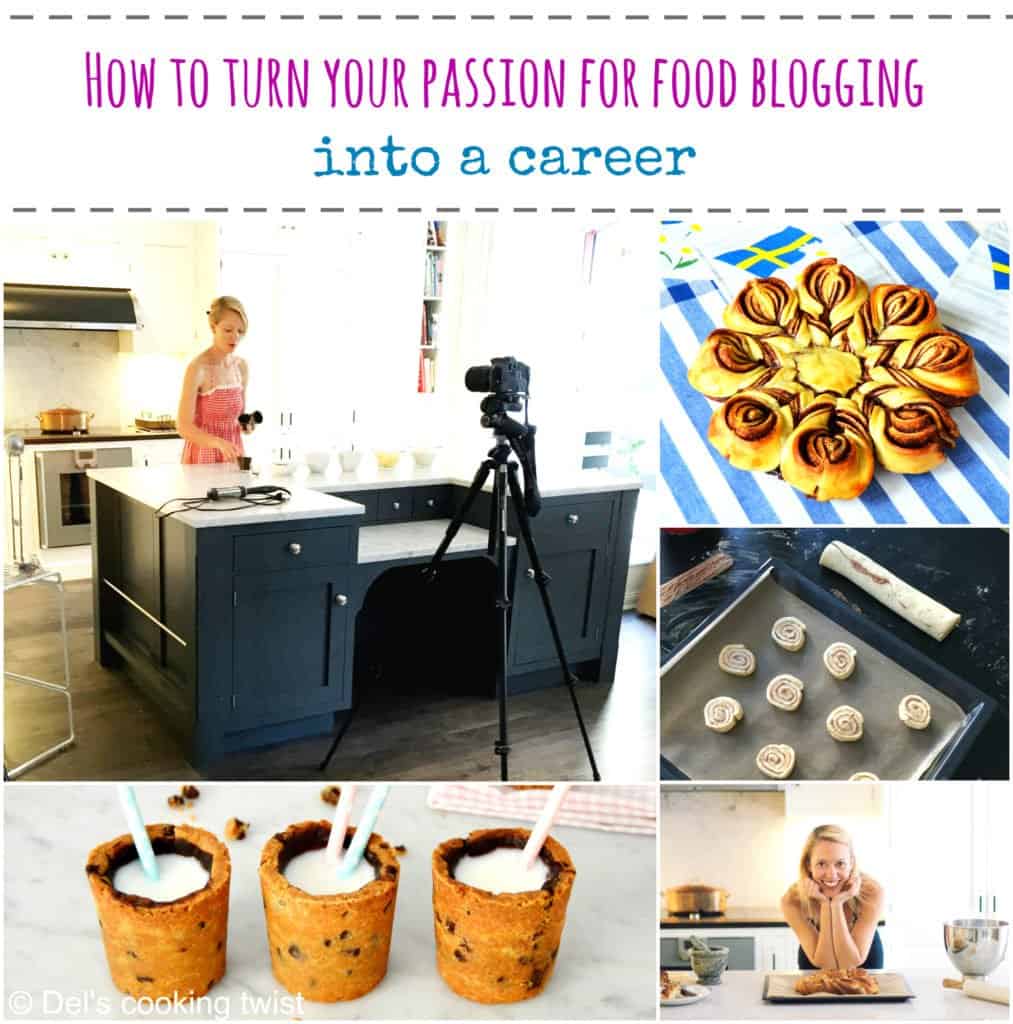
I started sharing my experience as a food blogger, revealing to you my best tips and tricks toward a successful food blog – read 4 keys to a successful food blog. Now I strive to explain how I turned my food blog into a career, as I know that many of you may wonder whether they should go for it or not (PART I & II).
By sharing with you my experience as a freelancer in the food blogging world, I want to help you having a better understanding of the challenges it implies to live from your passion, in terms of personal, professional and financial investment, so that you can ask yourself if you are ready to jump into this fabulous adventure and how you can actually start.
But let me come back to the beginning of this adventure. In September 2014, right after coming back from a fantastic trip to Australia and New Zealand, suddenly it happened: I launched my own company linked to my food blog – Del Food Consulting was born. The first important thing to notice here is that I chose to create a company linked to my blog – not to turn my food blog into a fully professional website. This choice was motivated by different reasons: the first one is about the market competition, the second about the diversification of activities I was aiming at.
Market competition – First of all, and before starting any kind of business, you have to be aware of the market you enter, and when it comes to the food blogging sphere, it won’t take you long to notice that it’s a saturated market (estimation of over 2 millions food blogs in the world in 2014, with many new blogs each day). So it’s important to know that you’re not alone blogging about food, and even if you’re very talented – which I’m sure you are! – it won’t be easy to swim in this giant ocean.
Of course, many food bloggers are non-professional bloggers who don’t make money with their blog, or occasionally only, so you might be advantaged. But in the same time, food companies understood the importance of food bloggers in their marketing strategy and now strive to cooperate with them, choosing the ones who accept to work for free at first. Fair enough, but it also means that you have to have very good reasons to ask a food company to be paid for what you have to offer while many others could do the same for free. Hard, but not impossible, it all depends on how you approach them – which must always be with confidence.
Diversification of activities – The second reason that motivated my choice to launch a company loosely linked to my blog instead of making my food blog professional is that I didn’t intend to make a living from activities directly linked to the blog (advertising, sponsored articles, food photography and so on). I wanted to see “bigger” somehow, or what I figured could be bigger at least. I had been working within marketing in the food industry in the past and I was still very interested in developing these skills, joining them with my passion of blogging. I am kind of a digital marketing nerd and I thrive to continually improve my skills in this area. And with all this background, I somehow figured I could also help food companies to develop their marketing strategy and as a result also work as a digital marketing consultant.
For all these reasons, it made sense for me to create a new company with an independent website from my food blog but still strongly linked to it, using my blog Del’s cooking twist as a showcase for my business.
After doing this analysis, I was ready to make this big new step and start as a freelancer. That year turned out to be a lot of work, energy and time investment more than financial incomes, and you need to be prepared for all this before starting. But it’s also a fantastic adventure and if you’re well prepared, you will learn a lot, develop some entrepreneurial skills that will give you a better approach of the professional world, and you will also learn a lot about yourself, pushing yourself every time a little bit further, and becoming a little bit stronger while developing your skills in many ways.
Now let me share with you the different steps you will go through if you decide to make a living from your food blog, directly or not. It’s important to mention here that these steps are taken from the prism of my experience and I don’t pretend to know the truth. Some people might have a different approach of working freelance as a food blogger, depending on their own experience. But in any case, it’s always good to ask yourself many questions before you start, so that you can be 100% sure of your decision and what you’re about to go through.
FROM A DREAM TO A PROFESSIONAL PROJECT
#1: Dream big. In every big thing coming out in this world, there is always a dreamer behind, and a little bit of craziness, so don’t be afraid of your dreams and ask yourself what really sweeps you off your feet. We live in a society where we are taught it can be risky to follow our dreams and to work as a freelancer in many ways (insecure, time consuming, etc.). But whatever some people may say, creativity is key and there is always space for new ideas (don’t forget that at some point there was a guy inventing the pool noodle!!). So if you give yourself the chance to think seriously about your dreams and how far you would like to push them, you will find the energy to come out with something great. Don’t be afraid of starting something innovative, that no one really explored until now. And above all, believe in yourself in your dreams!
#2: Evaluate your skills. You have a dream, you love blogging about food and you are crazy about it, fine. Now try to make your passion match your skills. What do you like most when blogging about food? Is it spending time in the kitchen cooking or baking? Or is it styling the food and being creative with the design, while developing your food photography skills and expressing your own style? You might also like writing about food and/or dietary aspects you feel concerned about (vegan, raw, gluten or lactose free trends…), pushing your digital marketing skills through all the social media and discover new ways to improve your blog visibility, or you can also feel concerned about food education and food communication in many ways: working with food companies to help them develop their communication strategy, making cooking and baking videos, organizing food courses or creating educational food talks or debates for instance. The range of skills you developed through your food blog is wide, and all you need to do is to wonder what you are really good at and what makes you good at this.
#3: Make your skills meet your dream. Once you made this analysis about your dream(s) and your skills, try to make them meet to come up with a nice creative idea. If possible, join your skills together with your professional skills to get even more chance to be successful with your idea. For instance if you work as a teacher, you probably developed some structure, oral skills and some educational skills that will help you to be a good public speaker about food. Of course you might experience a lack of skills in some areas to develop your dream, but you can always work on it, by taking a course (in cooking, baking, dietary expertise, selling, marketing, photography, image editing programs or whatever you may need). Don’t be afraid to push yourself a little bit further, this will help you to become not only good but expert in what you intend to start. Life is a never-ending learning process, and the more you are curious and challenges-oriented, the better you will be. I have a food blogger friend who didn’t know exactly how she could live from her passion, and she recently started a professional cooking class (Hi Steph!). Whatever the food project she will develop in the future, she will gain credibility by being a professional chef with advanced skills in cooking.
#4: Make it happen. Ok, so you have an idea-a dream about the food project you want to develop, you know you already have some skills that can serve your project and you are even open to develop new skills if needed. Now the hardest is to make it happen. To dare making a living of your dream is not the easiest part; because you have to take some risks and probably decide to quit your comfortable job that brings you some financial security after all. At this point, I won’t tell you: just go for it and forget about material aspects.
No, making decisions is not that easy and I don’t want to lie about a crucial point: starting as a freelancer is not easy, it’s very hard working all the time and in particular during the first months and years, it’s endless hours and weekends spent at developing your projects, prospecting for new clients and struggling with all the accounting issues for not making that much money in the beginning, and often much less than when you worked as an employee. It’s important to have all this in mind before starting.
The good things now: you will live your passion full time, loving every minute you spend at developing new projects without having the impression of working. It’s nevertheless mandatory that you can have the full support of your family and relatives and they have to be aware of the side effects of living with a freelancer, first because the time you will spend working will mean less time with them, but also because working as a freelancer implies that you will often doubt about yourself, wonder if you are doing the right thing (which is totally normal, we all go through these stages) and you need to be sure that everyone around you is ready to help you start this new adventure in the best conditions possible.
When it comes to the financial aspects, yes you will likely not earn so much money at the beginning, but at the same time, the starting capital of working freelance as a professional food blogger or at least with activities linked to your food blog is minute. You won’t need a huge starting capital (a good computer, probably a DSLR camera and some image editing programs, but that’s pretty much everything). So somehow, you aren’t taking so much risks trying and you should stop wondering again and again “will I really be successful?”. If it’s a big dream, I think it is always worth your best shot: you have a very minimal risk of being in debt (from the initial investment) and you will learn a lot from this experience. It will bring you a totally different approach to work and help you become more structured, focused, hard-working, efficient, etc. >>> READ PART II NOW
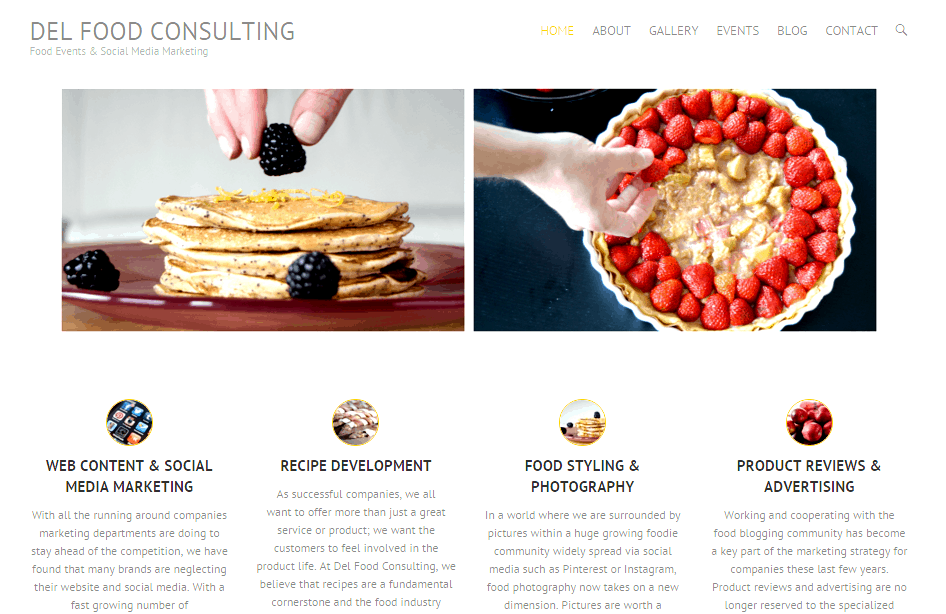
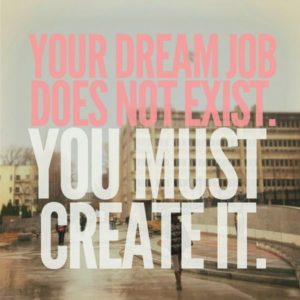
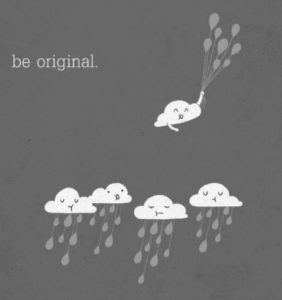
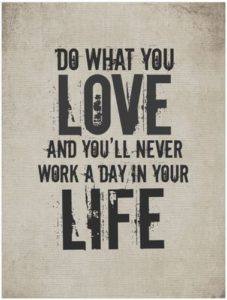

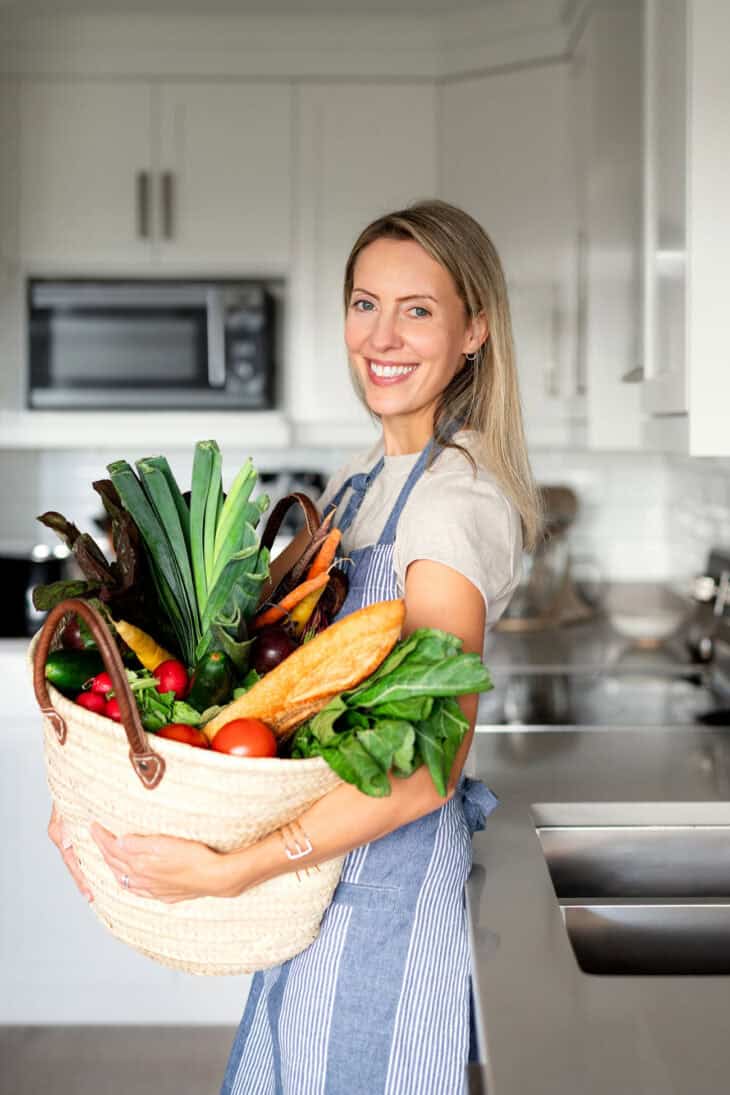
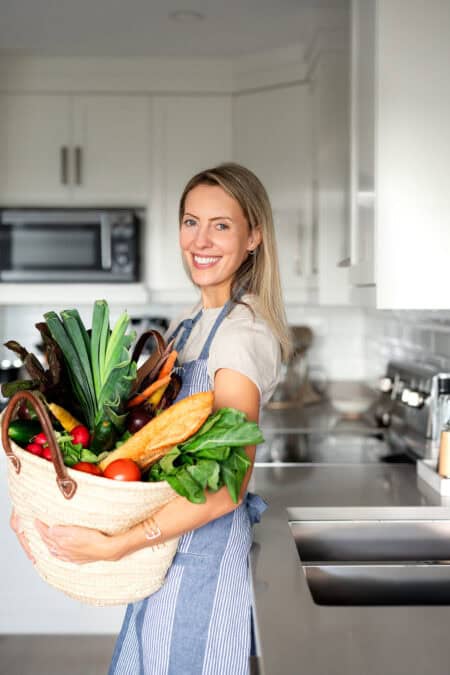
Diane
Beautiful post Del! Encouraging, smart and very informative. Thank you for putting this out there for all of us on the fence about our prospects in blogging. Great food for thought!
Marie – qui aime cuisiner… Aime manger !
Ton article est extrêmement enrichissant, merci ! Je prends note de tous ces bons conseils, pour un jour qui sait peut être franchir le cap ( mais quand mes enfants seront grands 😉 )
Delphine Fortin
Je suis vraiment ravie que tu aies pris le temps de le lire et que tu l’aies trouvé utile surtout 🙂 Merci d’avoir laissé un petit commentaire!
Florence de My Parisian Kitchen
Merci Delphine pour tes articles sur le blogging et le partage de tes expériences et conseils (et ton blog bien sür. Il flotte désormais parfois des airs nordiques chez moi 🙂 ).
J’ai pour ma part ouvert un blog bilingue français anglais il y a quelques mois avec un projet derrière tourné vers les étrangers s’intéressant à la cuisine française. Je serais ravie de pouvoir échanger avec toi.
Elizabeth
Such an information packed blog post! Thank you for all the useful advice!
Florian @ContenednessCooking
Wonderful article thanks for putting this together! Thank you for sharing this with us! 🙂
Nicole Neverman
This post is absolutely wonderful! I would love to make a living off my blog so your advice here is just great! Thank you so much for taking the time to share all of this with us.
Delphine Fortin
Oh Nicole, but you are so talented with your PhD!! maybe you should find a way to combine both! I’m sure it would be wonderful 🙂 I still think it’s such a shame we haven’t met in NZ last time, we would have had so much to tell to each other!
Peter @ Feed Your Soul Too
Really cool post. So much sharing and meaning for so many people.
Delphine Fortin
I’m really happy if I can help, it is so hard to take the right decision as a food blogger sometimes!
Camilla
Great tips here which I shall save to Pinterest for future reference:-)
Delphine Fortin
That sounds like a very good idea, Camilla! Thank you for spreading on Pinterest, I will be happy to help as many people as possible with my advice, or at least with my experience 🙂
La cuisine d’Adeline
Merci beaucoup pour cet article ! Je me posais pas mal de questions à ce sujet et grâce à toi j’ai mes réponses. J’en profite pour dire que tu fais un boulot magnifique, félicitation ! Tu as beaucoup de talent!
Delphine Fortin
Ton message me fait très plaisir et me touche beaucoup Adeline, merci pour tes compliments. Je suis ravie d’apprendre que mon blog te plaise 🙂 En effet, cela représente énormément de travail, ce dont on ne s’apercoit pas forcément lorsque l’on s’attarde quelques minutes pour réaliser une recette qui a retenu notre attention. Mais si elle a retenu notre attention alors qu’il existe tant d’autres blogs et sites de cuisine, c’est justement parce qu’il y a beaucoup de travail en amont. Je pense que plus que de talent, il faut parler de travail, d’essais et de persévérence. Car finalement au début je n’étais pas meilleure que n’importe quel blogueur débutant, peut être même pire 😉 Encore merci pour ton commentaire, je ne manquerai pas de faire un tour par chez toi tout prochainement, alors rdv sur ton blog!
L’atelier de Steph et Lolie
Superbe article Delphine merci pour le petit clin d’oeil 🙂 oui oui le CAP Cuisine à fond dedans ! Tout est possible quand la passion est la 😉 gros bisous Steph
Delphine Fortin
Merci Steph ! Ravie que cet article t’ait plu. Et merci d’avoir pris le temps de te plonger dedans, car oui il est super long 🙂 Je suis vraiment ravie que tout se passe bien pour toi et que tu vives de ton rêve à 100%, et j’ai hâte de savoir ce que tu vas nous proposer une fois que tu auras ton CAP en poche. Avec ta créativité débordante, je m’attends à un projet super chouette. Hâte d’en savoir plus! Bises!!
sotis
vraiment très intéressant, merci pour cet article!!! gros bisous
Delphine Fortin
Oh, je suis ravie qu’il te plaise, merci beaucoup pour ton retour. Il faut que je fasse un petit tour par chez toi pour me tenir au courant de tes dernières recettes, ca fait un petit moment et c’est toujours un plaisir 🙂
foodstyling
Il est long votre billet, je le lirai quand et si j’en aurai le temps. Mon blog ne fais pas partie de mon activité professionnelle de styliste culinaire et heureusement, parce que il ne me rapporte pas un rond, au contraire.
Mais comme c’est amusant de partager certaines idées et connaissances culinaires sur le net, je continue à publier et à partager, et ce sans états d’âme.
Bonne continuation quand même
Delphine Fortin
C’est vraiment super que vous viviez déjà de votre activité de stylisme culinaire, je serais ravie d’avoir votre retour sur le sujet. N’hésitez pas à me faire part de votre expérience si vous en avez le temps. Et très bonne continutation à vous!
Vanessa
Waou! ton article est vraiment inspirant! Merci. Pour ma part j’ai fait un peu le contraire: j’ai créé mon blog pour parler de mon activité pro de nutritionniste, et puis en fait j’y ai posté des recettes. Puis cette année j’ai consacré plus de temps à la cuisine qu’au coaching, et donc j’ai envie de poster plus de recettes. Je réalise qu’il faut beaucoup de travail pour que quiconque puisse découvrir mon blog et me lire, souvent je suis frustrée mais je vais persévérer. Une notion importante aussi est que on ne peut pas aller voir les entreprises avec un média kit si on a pas de lectorat solide, donc il faut juste travailler beaucoup, sans gagner d’argent pendant longtemps, le temps qu’on nous remarque dans google. donc on en revient au travail: investir dans du matériel pro, filmer, photographier, aller au charbon quoi. V ton parcours je suis confiante que ça paye…alors merci pour l’inspiration et le courage! 🙂
Delphine Fortin
Merci beaucoup de partager ton expérience avec moi, Vanessa ! Je trouve que c’est vraiment top que tu aies entrepris de compléter ton activité de nutritionniste avec le blog, et étant donné qu’il y a une forte demande en la matière, je suis sûre qu’à force de passer un peu de temps sur ton blog et les réseaux sociaux, tu rencontreras bientôt de vrais succès de ce côté là également ! As-tu pensé à lire mon article sur les clés d’un blog réussi en 4 étapes ? Je suis sûre que tu y trouveras quelques éléments qui t’aideront à décoller, car tu es dans un créneau tendance, porteur et qui plaît 🙂 Voici le lien vers l’article si tu souhaites le lire : http://www.delscookingtwist.com/fr/2015/05/17/4-keys-to-a-successful-food-blog/ Encore merci pour ton commentaire !
Pauline
Ca a l’air super intéressant! Je lis l’article dès que j’ai un peu plus de temps devant moi 🙂
Delphine Fortin
Merci beaucoup pour ton retour Pauline, contente que l’idée de cet article te plaise 🙂